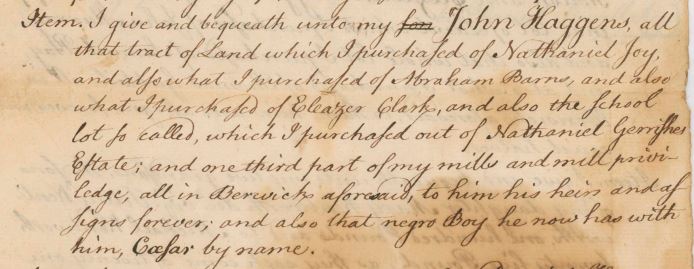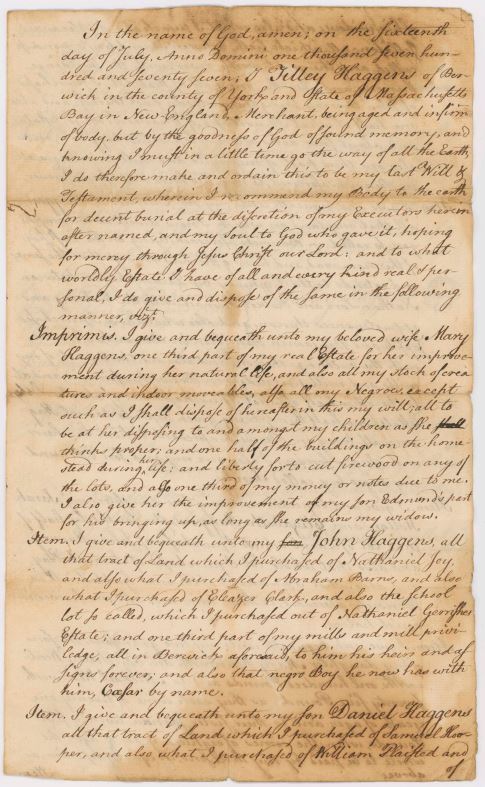 Sarah Orne Jewett House
Sarah Orne Jewett House
Caesar

 John Haggens was a son of Tilly Haggens (d. 1777) an Irish immigrant who settled in Berwick with his family, became a shopkeeper and bought up a good deal of land in the middle of what is now South Berwick.
John Haggens was a son of Tilly Haggens (d. 1777) an Irish immigrant who settled in Berwick with his family, became a shopkeeper and bought up a good deal of land in the middle of what is now South Berwick.
In his last testament and will, Tilly Haggens bequeathed four tracts of land and a third of his mills to John. In the same will and testament, Tilly Haggens bequeathed to his son John an enslaved person, Caesar.
As yet, nothing is known of Caesar. This is because few records were kept of enslaved people, and because enslaved people were robbed of their most personal possessions—their names, first names and surnames. There was a lot of crossover in names assigned to enslaved people, with names derived from myth, biblical references, and given as jokes—Caesar, Cato, Dinah, and Prince were all common names given to the enslaved.